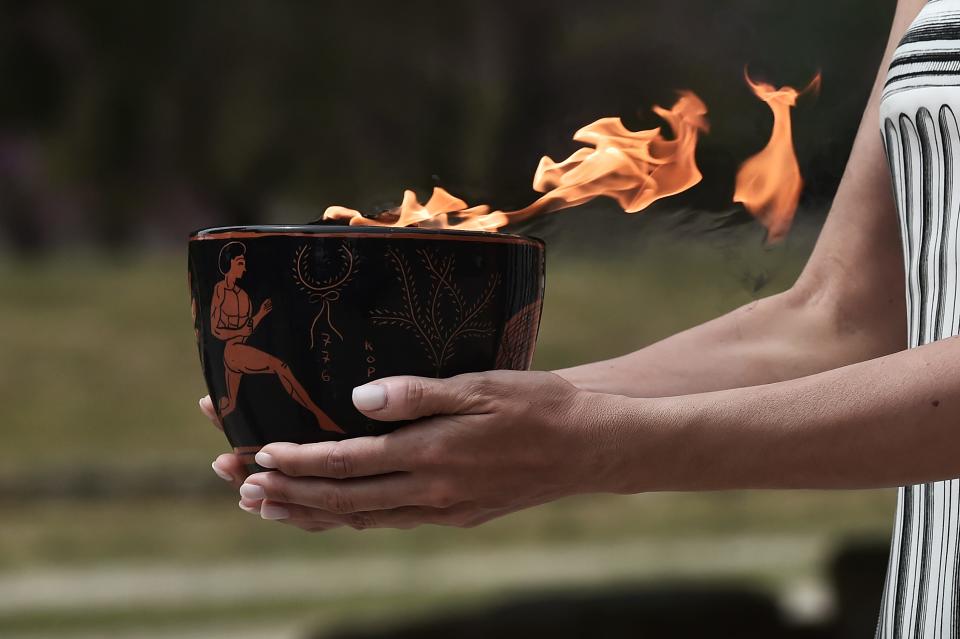When did the Olympics start? How the modern Summer and Winter Games came to be.
The 2024 Summer Olympics are fast approaching. More than 800 athletes will head to Paris to compete as part of Team USA. The Games will include warm-weather sports like swimming and diving as well as fan favorites like football, basketball and tennis.
U.S. athletes will look to add gold, silver and bronze medals to the country’s current record of 3,105, more than double the medal count of any other country.
Here’s a history lesson on the modern Games and their ancient origins.
When did the Olympics start?
An exact date is unknown, but the International Olympic Committee cites 776 BC as the first recorded Olympic Games. Nevertheless, most believe the Games were already 500 years old at that time, according to the History Channel.
The Games were a five-day religious festival honoring Zeus, according to the IOC. Athletes competed every four years in running, jumping, boxing, throwing, wrestling, pankration (combined boxing and wrestling) as well as chariot racing. Athletes competed naked and, during certain wrestling events, covered in oil.
The Games were held until 393 AD, when the Roman Christian Emperor Theodosius I banned them. He believed worshipping Zeus through the Games was a "pagan abomination," according to National Geographic.
The Olympics wouldn’t return until the late 19th century. Pierre de Coubertin, who co-founded the International Olympic Committee, was inspired to reinstitute the Games after seeing what German archaeologists uncovered during an excavation of ancient Olympia when he was a child. Coubertin, seeking to increase sports education in France, presented his proposal to re-establish the Olympics in 1892. It was approved in 1894.

When were the first Olympics?
The IOC hosted the first modern Olympics in 1896 in Athens. The location was chosen as a tribute to the Games' origins. According to the History Channel, 280 male athletes from 13 countries participated in 43 events, including track and field, swimming, gymnastics, cycling, wrestling, weightlifting, fencing, shooting and tennis. The 1896 Olympics also saw the world’s first marathon competition.
But world fairs largely outshone the early Olympic Games. and it wasn’t until the 1920s that the “first truly successful” Games occurred, the History Channel says. In 1924, over 3,000 athletes – more than 100 of them women – competed in Paris.
The games have grown in size and the number of events has expanded in the last century. This year, an estimated 10,500 athletes will compete in the 2024 Summer Olympics in Paris, the IOC reports.
How often are the Olympics?
The Summer and Winter Olympics occur every four years to “respect the ancient origins of the Olympic Games.” A period of four years was called an “Olympiad,” in ancient Greece.
Because the two alternate, we watch the Olympics every two years. For example, the 2022 Olympics were Winter Games and the 2024 Paris Olympics are Summer Games. The next Winter Olympics will be in Italy in 2026.
Subscribe to Chasing Gold newsletter: Your guide to everything 2024 Paris Olympics
Just Curious for more? We've got you covered.
USA TODAY is exploring the questions you and others ask every day. From "Which country has the most Olympic medals?" to "Can dogs eat oranges?" to "What is my state motto?" – we're striving to find answers to the most common questions you ask every day. Head to our Just Curious section to see what else we can answer for you.
This article originally appeared on USA TODAY: When did the Olympics start? Inside the ancient ritual that lives on.

